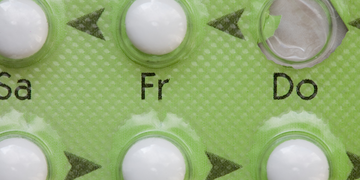How do I know my ovulation day?

Ovulation is the point in your menstrual cycle when an ovary releases a mature egg and your body is at peak fertility, also known as the time you’re the most likely to get pregnant. Whether you’re trying to get pregnant or avoiding it at all costs, knowing exactly when you’re ovulating can be important to managing your health but difficult to decipher. So we answered all of your most pressing questions about ovulation and your menstrual cycle.
How will I know if I am ovulating?
Ovulation typically happens on day 15 of your menstrual cycle, but it differs for everyone (and can even fluctuate from month to month!). Many members of our community track their menstrual cycle with a calendar or an app to understand when they are ovulating. This can also help you understand the other phases of your menstrual cycle and the symptoms you experience during them. After about three months of tracking your menstrual cycle, you should understand when you are ovulating.
However, tracking your cycle is only accurate if you are sure to update it regularly. To best understand when you are ovulating, we recommend taking an ovulation test. Ovulation tests detect high levels of LH (luteinizing hormone) in your urine, which surge 24-48 hours before you ovulate. Your LH signals to your ovary to release an egg. When an ovulation test detects a surge, it will display a positive result. This means that ovulation will likely happen in the next 24-48 hours, and you will be most fertile in that window. Ovulation only lasts between 12 and 24 hours (that’s how long the egg released from the ovary is viable), so knowing your ovulation day is key to understanding when you can and cannot get pregnant in your menstrual cycle.
ovulation-tests
What are the symptoms/signs of ovulation?
The body’s symptoms and signs of ovulation vary from person-to-person, and some may not experience any symptoms at all. The most common signs of ovulation are:
-
A slight pain or cramping in your side
-
A rise in body temperature after ovulation takes place, which can be detected with a thermometer
-
Wetter or clearer vaginal discharge
-
Breast tenderness
-
Bloating
-
Light spotting
-
Increase in sex drive
Some of the symptoms of ovulation are similar to the symptoms of pregnancy, so it can be easy to confuse one for the other. If you ever think you could be pregnant, we recommend checking out our pregnancy test for peace of mind.
What are the chances of getting pregnant during ovulation?
Your "fertile window" is the point in your menstrual cycle you are most likely to get pregnant and typically includes your ovulation day and the five days beforehand. Having sex during this time gives you the best chances of getting pregnant because sperm are able to live for three to six days after emission. So even if you have sex before your ovulation day, the remaining sperm may be able to fertilize the egg as it is released from the ovary. Keep in mind though that the closer you have sex relative to your ovulation day, the higher your chances are of getting pregnant.
pregnancy-tests
Knowing your ovulation day, fertile window, and ovulation symptoms can help you understand when you are most likely to get pregnant. Whether you want to get pregnant or not, an ovulation test can help you keep track of your cycle in order and take the mystery out of your menstrual cycle.
Have any more questions about ovulation? Comment them below or check out Winx Health (formerly known as Stix)’s Instagram for expert advice.
Keep Reading

What does Project 2025 say about women's health?
Dec 20

A sex educator's post-election resource guide
Dec 10

What does RFK Jr. say about women's health?
Nov 26










